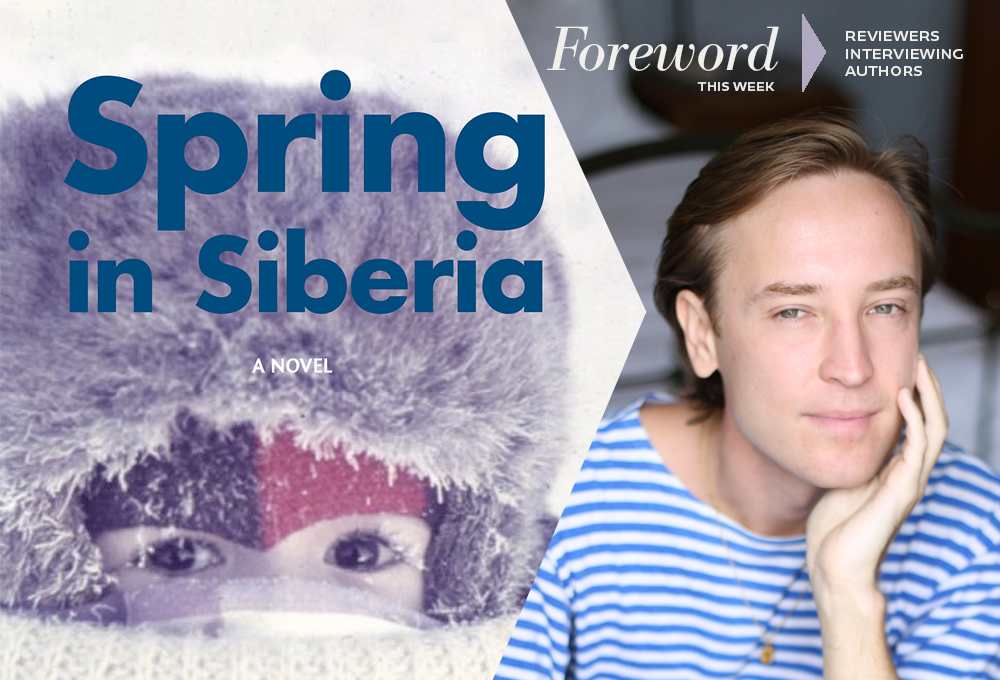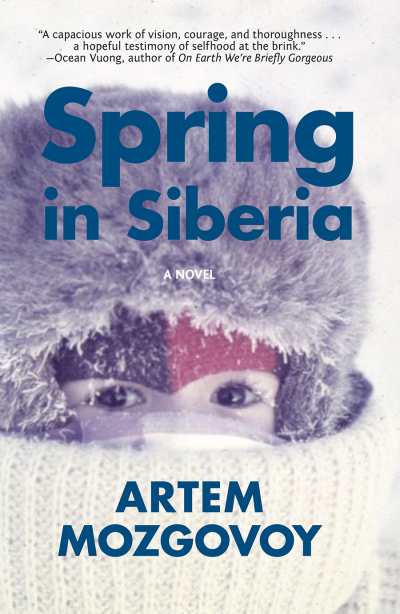Reviewer Erika Harlitz-Kern Interviews Artem Mozgovoy, Author of Spring In Siberia

Oh, Russia, are you having fun yet? The butt of sanctions and scorn, slaughter and humiliation on the battlefield, your place in world standings can’t get much lower.
Of course, it’s unfair to hold your citizens to the same substandards as we do your maniacal leader, but that’s the way it works—until you shake him off like a bad case of lice. We’ll be here for you when that build-back-better time comes, you can count on it. Memories are short.

Artem Mozgovoy’s Spring In Siberia reminds us of the everyday casualties, the heartbreaking isolation and intolerance of the Russian system that Putin has built. In her Foreword review for the May/June 2023 issue, Erika Harlitz-Kern calls the book “a chilling coming-of-age story about everyday helplessness and being forced to adapt or founder when the merciless wheels of social change begin to turn,” and the following conversation makes it very clear that we must never look away.
Spring in Siberia is the story of Alexey, who lives through the collapse of the Soviet Union and Russia becoming a country without an empire for the first time in centuries. Why did you want to write Alexey’s story?
At that time I just fled Russia and joined Luxembourg University (before I had to leave it, unable to fund my studies). During the course of my program there, I couldn’t help but notice that the global culture was dominated by the American stories. We, the young students of literature from around the world, sat in those classrooms in the center of Europe and read the books on the American class struggle, on the American civil rights movement, on the American gay liberation movement, on the American suffrage movement … It made you feel like there was no other country, like there was no other people, like no story, no life outside the US that ever mattered. I wanted to scream back, “Hello there! We exist too, you know? We too walk the Earth!”
I’ve kept a diary uninterruptedly since I was eleven. Before leaving Russia for good, I had to destroy my journals. I couldn’t take that heavy load with me, and leaving it behind wasn’t wise either. Once abroad I felt the urge to rewrite it, to rewrite my own diaries, my own stories. And so I did just that—in English and in a shape of a novel.
The focus of the story is on the persecution of gay people in Russia. Why is it important for people to know what is happening, and what do you think that people outside of Russia can do to support gay rights in Russia?
When I hear my American friends say that “there’s no worse place to be for a queer person today than Florida,” I have to take a deep breath … Why is it important to be aware of what’s happening in Russia? In Ukraine? In Iran? In Kenya? In Uganda? To me the answer is so simple … The world would be a place far less lonely if we learnt to hear one another. We would understand ourselves much better and, perhaps, even find ways to better our own future.
Listening, hearing, learning to relate to the seemingly most distant points of view and voices is also the best support one can give, the best support one can receive. We’re one. We’re in the same boat—yet we keep ignoring it.
The war in Ukraine and its potential escalation into the Third World War is the clearest signal of our inability to establish contact, to hear each other. In the same way COVID-19 served us the best (or the worst) of signals of the humanity’s exorbitant abuse of nature. At some moment, we receive punishment for our arrogant ignorance.
What ultimately helps Alexey survive is his love for the arts. Against the backdrop of current world events, what would you say is the role of art today?
For me, art has always been synonymous with light. Shedding light on some long-ignored emotion, intention, connection, community, or part of the world … But also bringing light into the world. Empowering. Enlightening. Illuminating. And if there are some tears involved in the process, well, then you get the rainbow.
Erika Harlitz Kern
